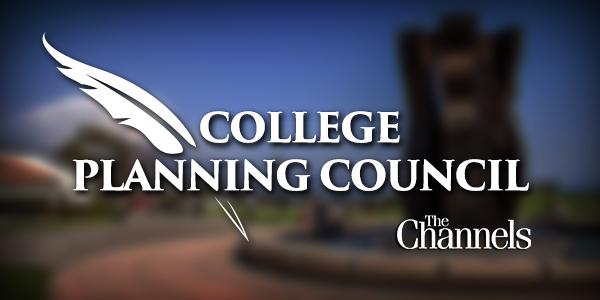After spending weeks pouring over possible resolutions to the college’s recent equity turmoil, the College Planning Council presented the updated anti-racism and anti-sexism plan created by an Ad Hoc group Tuesday.
One of the main objectives of the presentation was to clarify the intentions and tangible goals of the task force. The most stressed issue was communication, specifically the lack thereof between faculty, staff, and students. The group hopes to improve this with new online transmissions. The council also plans to have check-ins that happen on “at least” a monthly basis, said Pamela Ralston, executive vice president of educational programs.
“We’re doing things a little differently,” Ralston said. “I’m hoping for some products that I think we need… Let’s be happy that the board said ‘hey, you know, anti-racism training could be really useful.’”
There were concerns that the group simply wasn’t doing enough to address the variety of campus issues, but the council is calling it a step in the right direction. Ralston, who is taking an administrative position for the group, said that while they’ve had “these conversations in pockets of people,” it is important that the conversations move to a larger audience.
“The group is the initial conversation,” said Laurie Vasquez, vice president of the Academic Senate. “The work that we do is layered.”
The first official meeting of the Ad Hoc group took place in between the past two College Planning Council meetings. They are hoping to present a finalized plan for the task force after meeting with professional facilitator Lizzie Rodriguez, who works at Restorative Community Network.
Over the past few council sessions, it was stressed that a professional facilitator be part of the Ad Hoc group. Members of the group regarded Rodriguez as a welcome and helpful guide moving forward. Rodriguez has an extensive background in mediation, including travelling to Rwanda for peace building efforts after the genocide.
The Ad Hoc group was also hailed as a way to bring the council together.
“We came at this work as all of us coming together,” Ralston said. She then joked about the “very college nature of making a group whose work is making a group.”
While they hope to present the final task force plan at the next meeting, they were only able to meet the day of the council meeting. It was suggested that the group take the time that they need, so it is unclear if the final proposal will be ready for the next council meeting.
“As we’ve learned, moving too fast gets us in trouble,” Superintendent-President Anthony Beebe said. He briefly cited the anti-racism resolution that is being worked on by the Academic Senate, saying that concerns have arisen because of the “resolution going too fast.”
The council will meet March 19 to further discuss the future of the task force.














